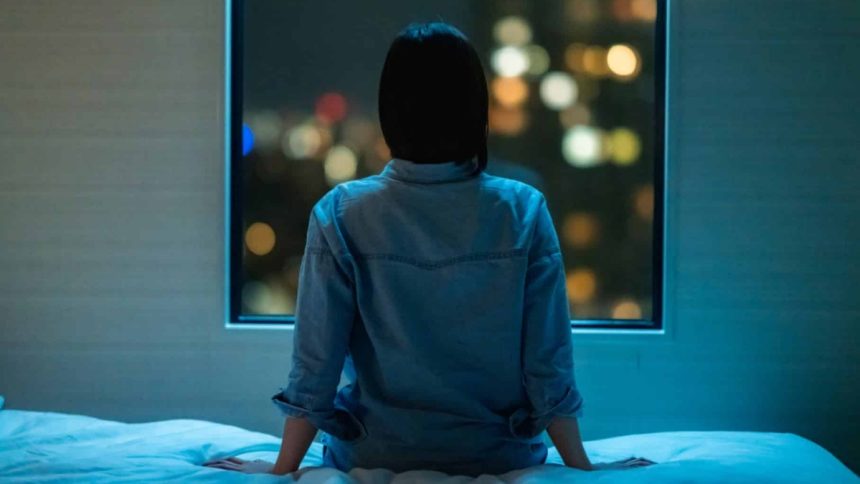Sleep is like that friend who promises to hang out but keeps flaking on you. You close your eyes, hoping for blissful rest, but end up staring at the ceiling or waking up more exhausted than you were before bed. Sound familiar? You’re not alone. Millions of people wrestle with restless nights, and the reasons aren’t always what you think. If your sleep has been less “recharge” and more “error 404,” let’s get real about why you’re tossing and turning—and how to fix it.
Is Your Sleep Routine Totally Out of Whack?
You’ve heard it all before: “Go to bed and wake up at the same time every day.” Sure, that sounds great in theory, but life happens. A random Netflix binge, scrolling TikTok until your thumb cramps, or working late can throw everything off. Your body thrives on routine, and when you keep switching up bedtime, it’s like confusing your internal clock. One night it’s Vegas, the next, a silent retreat—your body doesn’t know what to expect.
Here’s the kicker: erratic schedules can mess with your circadian rhythm, that internal timer that decides when you’re awake and when you’re sleepy. When it’s thrown off, your sleep gets choppy. The fix? Start small. Aim for consistency with your wake-up time, even on weekends. Once your mornings are steady, your nights will start to fall into place.
Could It Be a Health Thing You’re Ignoring?
Sometimes, the enemy of your sleep isn’t your screen time—it’s something going on in your body. Snoring so loud you wake yourself up? Constantly gasping for air in the night? These could be signs of a bigger problem, like sleep apnea. Addressing sleep apnea isn’t just about getting better rest; it’s about protecting your health. Left unchecked, it can raise your risk for heart issues and daytime fatigue that’ll wreck your focus.
But let’s not forget other sneaky culprits. Conditions like restless legs syndrome, anxiety, or even undiagnosed allergies can sabotage your nights. If you’ve been trying all the hacks and nothing’s working, it might be time to chat with a doctor. They can help you figure out if there’s more at play.
Is Your Sleep Space Secretly Sabotaging You?
Let’s talk about your bedroom. Is it the peaceful oasis it should be, or more like a chaotic jungle of unfolded laundry, bright lights, and random noises? Your sleep environment matters—big time. Your brain associates clutter with stress, so if your space is messy, you’re not exactly setting the mood for good sleep.
Lighting is another silent offender. Even that tiny glow from your phone charger can mess with melatonin production. And noise? It doesn’t have to be a jackhammer to disturb you—your upstairs neighbor’s late-night footsteps can do the trick. Creating a sleep-friendly space doesn’t mean you need a Pinterest-worthy bedroom. Ditch distractions, dim the lights, and embrace blackout curtains or a white noise machine if things get too loud.
Are You Ignoring How Temperature Affects Your Sleep?
Think about the last time you woke up drenched in sweat or shivering like it’s January in Alaska. Temperature has a massive impact on how well you sleep, yet it’s one of the most overlooked factors. Your body’s temperature naturally drops as you drift off, so if your room feels like a sauna or an icebox, your sleep cycle is going to suffer.
Here’s where tech can save the day—or night. Cooling sleep systems are game-changers for temperature regulation. The Chilipad Dock Pro is a great example of this, or the AquaPad Breeze. These gadgets let you fine-tune your sleep temperature, creating a climate that works for your body instead of against it. Even if high-tech isn’t your vibe, keeping your room cool, between 60–67°F, can work wonders.
Are You Sabotaging Yourself Before Bed?
Let’s be real—your bedtime habits might be part of the problem. Midnight snack? That late-night burrito isn’t just sitting in your stomach; it’s actively messing with your sleep. Heavy meals close to bedtime make your body work overtime when it should be winding down.
Then there’s caffeine. Yeah, that “one last cup” at 5 p.m. might still be buzzing in your system hours later. Even alcohol, which feels like it’s helping you relax, can mess with your REM sleep, leaving you groggy the next day.
What about your phone? Blue light doesn’t just keep you awake; it tells your brain it’s still party time, delaying melatonin production. Setting your phone aside an hour before bed might feel impossible, but it’s a small shift that pays off big. If going tech-free feels too drastic, try switching to night mode or blue-light-blocking glasses to ease the impact.
Time to Sleep Smarter, Not Harder
If you’re tired of being tired, it’s time to switch things up. Sleep isn’t just about what happens when you close your eyes—it’s everything you do before, during, and even after you wake up. Whether it’s fixing your routine, addressing health issues, upgrading your sleep space, or tweaking those pre-bed habits, there’s a way forward.
Start with one change at a time. Sleep is personal, and what works for someone else might not work for you. The key is consistency and patience. You didn’t ruin your sleep overnight, so don’t expect to fix it in a single night either. The best part? Once you start getting real rest, you’ll wonder how you ever survived without it.
Lynn Martelli is an editor at Readability. She received her MFA in Creative Writing from Antioch University and has worked as an editor for over 10 years. Lynn has edited a wide variety of books, including fiction, non-fiction, memoirs, and more. In her free time, Lynn enjoys reading, writing, and spending time with her family and friends.















